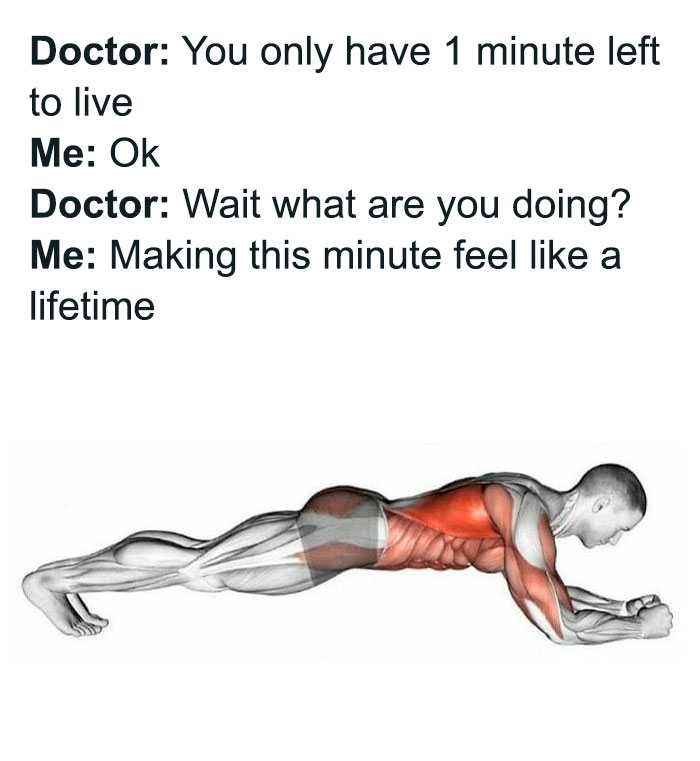Why Attitude Is a Key Fitness Level Factor

Why your attitude determines your fitness level – even more than your workout plan.
Have you ever wondered why some people seem to stick with their fitness routines while others quit after a few weeks?
Or why two people can follow the exact same workout plan but get completely different results?
The secret isn’t some magic exercise or supplement. It’s something far simpler (and harder): your attitude.
A positive attitude toward fitness doesn’t just make exercise more enjoyable – it literally changes how effective your workouts are, how consistently you show up, and ultimately, how fit you become.
Let me explain why attitude might be the most underrated fitness factor, and how to harness it to transform your results. (Spoiler: it’s not about “just being positive”)
How Your Attitude Shapes Your Fitness Level
The science behind why attitude matters

When researchers track fitness outcomes over time, they consistently find that people with positive attitudes toward exercise have better results – even when following identical workout programs as their negative-minded peers.
One longitudinal study tracking students found that positive attitudes toward fitness created higher perceived competence, which then boosted actual fitness performance in a powerful upward spiral effect. The better they felt about exercise, the more competent they became, which made them feel even better about exercise, and so on.
This creates what psychologists call a “virtuous cycle” where attitude → behavior → results → better attitude → better behavior you get the idea.
The Theory of Planned Behavior explains this phenomenon perfectly. It shows that our intentions to exercise (which drive actual behavior) are heavily influenced by our attitudes. When you see exercise as something positive rather than a punishment, you’re far more likely to make time for it and push harder when you do it.
The emotional side of fitness success
Ever notice how some people actually look forward to their workouts?
That emotional connection to fitness is crucial. Research shows that positive emotions like joy, pride, and satisfaction with exercise enhance motivation and build mental resources like creativity and perseverance.
This is especially important for older adults, where studies have found that positive attitudes toward physical activity don’t just improve fitness – they enhance overall psychological well-being and independence.
The mind-body connection is real

Here’s where it gets really interesting: attitude doesn’t just affect whether you show up to the gym. It actually influences what happens in your body during exercise.
A positive mindset during workouts has been linked to:
- Greater strength gains from the same exercises
- Better endurance during challenging activities
- Improved recovery between sessions
- Enhanced brain benefits from aerobic exercise
That’s right – aerobic exercise improves cognitive function, including memory, processing speed, and cognitive control. But your attitude toward that exercise can amplify or diminish those benefits.
The growth mindset advantage
The difference between people who succeed at fitness and those who don’t often comes down to mindset.
People with a growth mindset view challenges as opportunities to improve rather than threats to their self-image. They see fitness setbacks as temporary and solvable rather than proof they’re “just not athletic.”
This mindset leads to:
- Greater resilience when facing plateaus
- Willingness to try new, challenging exercises
- Better long-term consistency (the real key to results)
- Higher fitness achievement over time
A fixed mindset (“I’m just not a runner”) dooms you to failure before you even begin. But a growth mindset (“I’m not a strong runner yet, but I can improve”) sets you up for success.
Why Attitude Might Be Your Missing Fitness Ingredient
It determines whether you show up at all
Let’s be honest – the most effective workout plan is the one you actually do.
Research consistently shows that people with positive attitudes toward exercise have far higher participation rates. They simply show up more often, which is the foundation of any fitness improvement.
When you genuinely believe in the benefits of exercise and have positive associations with it, you’re more likely to:
- Prioritize workouts in your schedule
- Find time even during busy periods
- Stick with it long-term
- Bounce back after breaks
It changes how hard you work
Two people can do the exact same workout but get entirely different results based on their attitude during the session.
The person who’s mentally engaged, focused, and positive will:
- Push harder during challenging sets
- Complete more reps
- Maintain better form
- Get more physiological benefit from the same exercise
Think about your own experience: When you’re dreading a workout versus when you’re excited about it, don’t you put in different levels of effort?
It affects your mind-body connection
When your attitude toward fitness is positive, you’re more likely to develop better body awareness and technique. You pay attention to how movements feel rather than just going through the motions.
This improved mind-muscle connection leads to:
- Better technique
- More effective targeting of specific muscles
- Reduced injury risk
- Greater overall results from each workout
It influences your entire lifestyle
A positive fitness attitude doesn’t exist in isolation – it spills over into other health behaviors.
Research shows that when people adopt positive attitudes toward physical activity, they also tend to make better nutrition choices, prioritize sleep, and engage in other healthy behaviors.
They’re also more likely to invest in their fitness journey by purchasing appropriate equipment and services, creating a financial commitment that further reinforces their dedication.
How to Improve Your Fitness Attitude

Focus on enjoyment first
The biggest attitude mistake people make is forcing themselves to do exercises they hate because they think they “should.”
Instead:
- Try different activities until you find something you genuinely enjoy
- Mix up your routine to prevent boredom
- Make workouts social if that motivates you
- Choose forms of movement that feel good in your body
Celebrate small wins
Don’t wait until you’ve lost 20 pounds or can bench press your body weight to feel successful.
Acknowledge and celebrate smaller achievements like:
- Showing up consistently for a week
- Adding 5 pounds to your lift
- Feeling less winded on the stairs
- Having more energy throughout the day
These small wins build positive associations with exercise that fuel long-term motivation.
Re-frame how you think about exercise
Stop thinking of exercise as punishment for what you ate or something you “have to” do.
Start seeing it as:
- A form of self-care
- “Me time” in your busy schedule
- A way to get stronger, not smaller
- An energy-builder, not an energy-drainer
- An investment in your future health and abilities
Find your fitness community
Your attitude is heavily influenced by the people around you. Research shows that social support dramatically improves exercise adherence and enjoyment.
Consider:
- Group fitness classes
- Finding a consistent workout buddy
- Online fitness communities
- Working with a supportive trainer
Being around others with positive fitness attitudes can transform your own mindset.
The Bottom Line

Fitness isn’t just about sets, reps, and calories. Your attitude toward exercise might be the most important factor in determining your actual fitness level.
The good news? While changing your body takes time, you can start shifting your attitude today.
Begin by finding forms of movement you genuinely enjoy, celebrating small wins, and surrounding yourself with positive fitness influences.
Remember that fitness is a lifelong journey, not a quick fix. The most successful people aren’t those with the most discipline or perfect genetics – they’re the ones who’ve found ways to make fitness something they look forward to rather than dread.
And that, my friends, all starts with attitude.
Resource:
Timo, J., Sami, Y., Anthony, W., & Jarmo, L. (2016). Perceived physical competence towards physical activity, and motivation and enjoyment in physical education as longitudinal predictors of adolescents’ self-reported physical activity.. Journal of science and medicine in sport, 19 9, 750-4 . https://doi.org/10.1016/j.jsams.2015.11.003.

